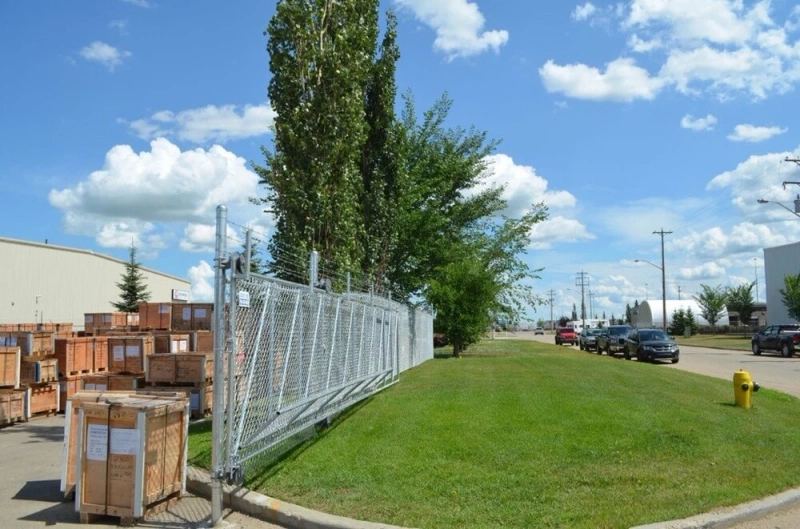Choosing the right fence for your industrial property is a crucial decision that requires careful consideration of various factors. From security requirements to budget constraints, selecting the appropriate fence can have significant implications for the safety and functionality of your industrial facility. In this guide, we'll explore the essential steps to help you make an informed decision and choose the right fence for your industrial property.
Introduction
Industrial properties often have unique security and operational needs that necessitate the installation of robust perimeter fencing. A well-chosen fence not only enhances security but also contributes to the overall aesthetics and branding of the facility. With numerous options available, it's essential to understand the key considerations when selecting a fence for your industrial property.
Understanding Industrial Property Needs
Before selecting a fence, it's crucial to assess the specific needs of your industrial property. Security is typically a top priority for industrial facilities, as they may store valuable equipment, materials, and inventory that need protection from theft and vandalism. Additionally, industrial properties must comply with regulatory requirements regarding perimeter security and access control.
Types of Fences Suitable for Industrial Properties
Chain-Link Fences
Chain-link fences are a popular choice for industrial properties due to their affordability and versatility. They provide a high level of security while allowing visibility into and out of the facility, making them suitable for monitoring purposes. Chain-link fences are available in various heights and can be customized to meet specific security requirements.
Welded Wire Mesh Fences
Welded wire mesh fences offer enhanced security and durability compared to traditional chain-link fences. Constructed from welded steel wire, these fences provide a robust barrier that is resistant to cutting and climbing. Welded wire mesh fences are ideal for industrial properties that require maximum security and perimeter protection.
Steel Palisade Fences
Steel palisade fences are known for their formidable appearance and high level of security. Comprising vertical steel pales with pointed or rounded tops, these fences act as a strong deterrent to intruders. Steel palisade fences are commonly used in industrial settings where security is paramount, such as warehouses, manufacturing facilities, and distribution centers.
Factors to Consider When Choosing a Fence
Security Features
When selecting a fence for your industrial property, prioritize security features such as height, material strength, and anti-climb measures. Consider the level of security required to protect your assets and choose a fence that provides adequate deterrence against unauthorized access.
Durability and Maintenance
Choose a fence that is durable and requires minimal maintenance to ensure long-term functionality and cost-effectiveness. Factors such as material quality, corrosion resistance, and weather resistance should be taken into account when evaluating the durability of a fence.
Aesthetics and Branding
In addition to security and durability, consider how the fence will contribute to the overall aesthetics and branding of your industrial property. Choose a fence that complements the architecture and design of the facility while effectively communicating your brand identity to visitors and stakeholders.
Budget Considerations
Initial Costs vs. Long-Term Savings
While budget constraints are a significant consideration, it's essential to balance initial costs with long-term savings when selecting a fence for your industrial property. Investing in a high-quality fence may require a larger upfront investment but can result in significant cost savings over time due to reduced maintenance and replacement costs.
Return on Investment
Consider the return on investment (ROI) of installing a fence for your industrial property. A well-chosen fence can increase the value of the property, improve security, and enhance the overall appearance of the facility, leading to a higher ROI in the long run.
Installation Process
Hiring Professional Contractors
Ensure the proper installation of your industrial property fence by hiring experienced and reputable contractors. Professional installation not only ensures compliance with industry standards and regulations but also minimizes the risk of installation errors and delays.
Timeline and Logistics
Plan the installation process carefully, considering factors such as project timeline, site preparation, and logistics. Coordinate with contractors to establish a realistic schedule and minimize disruptions to ongoing operations.
Customization Options
Additional Security Features
Explore customization options to enhance the security and functionality of your industrial property fence. Consider incorporating features such as access control systems, surveillance cameras, and sensor technology to augment perimeter security measures.
Branding Opportunities
Utilize your industrial property fence as a branding opportunity by incorporating company logos, signage, and color schemes. A well-branded fence not only enhances visibility and recognition but also reinforces brand identity and professionalism.
Conclusion
Choosing the right fence for your industrial property is a critical decision that requires careful consideration of various factors, including security requirements, durability, aesthetics, and budget constraints. By following the steps outlined in this guide and selecting a fence that meets your specific needs, you can enhance the security, functionality, and visual appeal of your industrial facility



